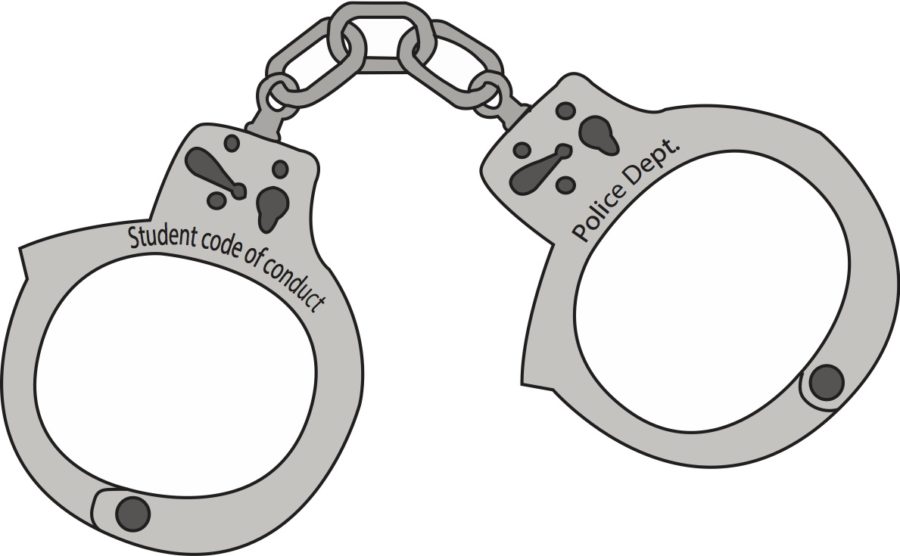Editorial: Sexual assault should always be a criminal matter
Rather than allowing universities and law enforcement overlapping powers, the two should have distinctly separate powers when it comes to sexual assault.
January 26, 2015
In a recent column in the Washington Post, Joe Cohn, legislative and policy director for the Foundation for Individual Rights in Education, discusses the differences in handling sexual assault cases involving students at university judicial offices or committees, law enforcement and the criminal justice system.
When a student is sexually assaulted, he or she has the option of reporting the crime to either law enforcement officials to file criminal charges or to a university judicial office for most likely violating the student code of conduct, or both.
A crime being heard by both institutions is not considered double jeopardy, according to the ISU Judicial Affairs webpage, because “If you’ve already been to court for the alleged incident, then you have fulfilled your obligation to any violation of Iowa Law. You have not, however, met your obligation for Iowa State University policy.”
In his column, Cohn argues that “the solution is to assign universities and law enforcement professionals complementary, rather than overlapping, responsibilities” because this will ensure that criminal cases are handled by those who have the power to convict and punish criminals rather than faculty and administrators, who do not have the same power or experience.
At Iowa State, a student will receive a letter from the Office of Judicial Affairs if a case is brought against him or her. Then, the student must schedule a meeting with a staff representative of the office, where he or she can explain what happened and declare if he or she is responsible.
In a major case at Iowa State — the classification that would include sexual assault — a student can request an administrative hearing or receive the default All University Judicial hearing in the first meeting. If a student is responsible in the case, then an Agreed Resolution must be signed by the representative, Dean of Students and the responsible student, according to the webpage.
Cohn explained the root of the problem lies in Title IX and universities need to respond to sexual discrimination and stop it from happening. Cohn said sexual violence is an “extreme form” of sexual discrimination.
He went on to explain many universities interpreted this requirement as deciding if someone committed sexual assault and punishing the person if he or she did it. However, Cohn outlines a plan that will help universities meet those Title IX requirements without using a judicial office, including preventative education, counseling for victims and providing academic and housing help.
The argument for having both systems in place is clear. The university and the criminal justice system have different goals with hearing these cases. The first is ensuring educational opportunities and ending discrimination and the second is prosecuting a criminal. While it may seem like a good idea to have a sexual assault case go through both the university judicial system and the criminal justice system, there are many flaws to this concept.
The column states that some university officials have pressures to “sweep” sexual assault cases under the rug. If not that extreme, university judicial officials at least do not have the same experience and powers in investigations like oaths and subpoenas as those in the court system.
One of the most prominent failings of a university judicial system is the case of Emma Sulkowicz at Columbia University. Sulkowicz carried her dorm room mattress, where she was sexually assaulted, around campus while her attacker still remained at school.
Sulkowicz’s parents wrote an open letter in the Columbia Spectator last October, which outlined Columbia’s failings while handling her case, including issues with impartiality and fairness.
So is it really the best option for universities to handle cases of sexual assault?
While at most universities, judicial officials probably do all they can to help sexual assault victims and remain fair during the process, are they really equipped to handle these cases?
Universities cannot send a sexual assault perpetrator to jail or take them off the streets. While they can remove them from the school itself, is that really the safest option for communities?
Universities should be able to focus their attentions on what they do best, providing for students. Universities can be the strongest at providing aid like counseling and academic accommodations, rather than handling the cases on their own … that power is best left to law enforcement.

















